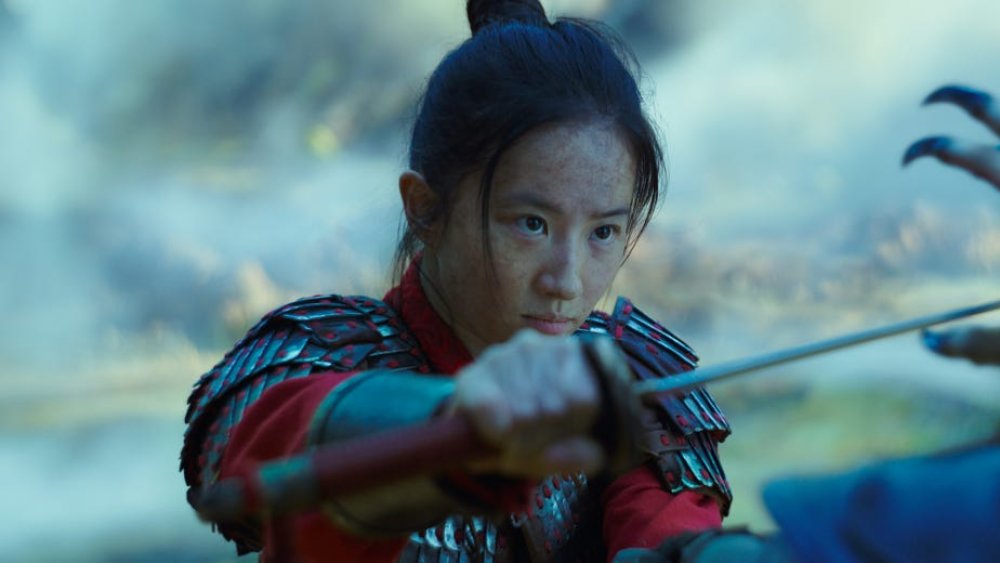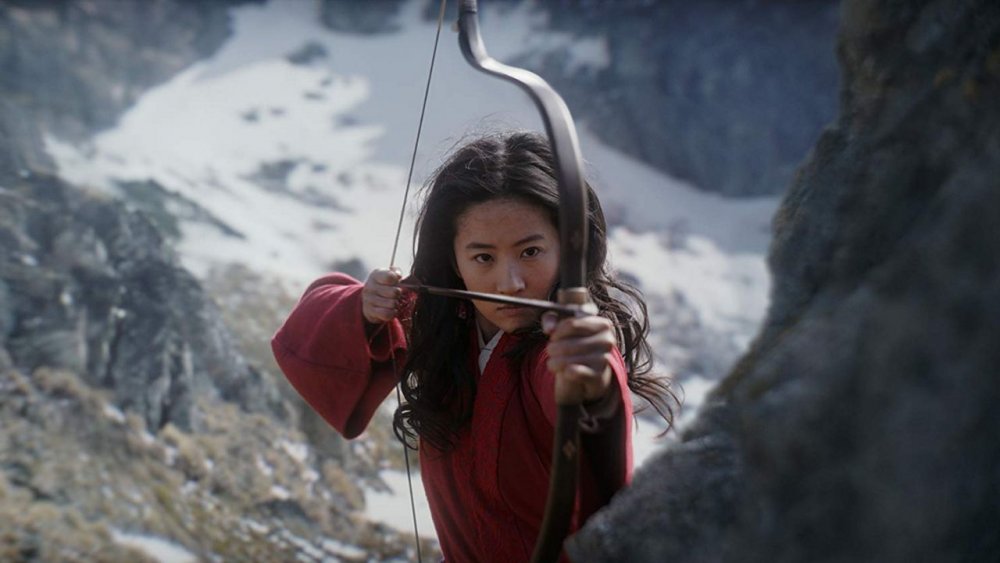The Outrage Over Mulan Just Keeps Intensifying
In our contemporary era, genuine political protest can occur anywhere — even in the comments section of a YouTube video.
Disney's live-action Mulan remake continues to suffer under the plight of marketing itself during major political upheaval in Hong Kong. Most recently, a new TV spot for Mulan, posted on its official YouTube channel, is being rating-bombed — with downvotes overwhelming upvotes by a near four-to-one ratio. (As of this writing, the video as 2,400 likes and 9,100 dislikes.)
This is only the latest chapter in Mulan's sudden uphill battle to critical and financial success. At this point, between garden-variety remake gripes and genuine political critique from all over the globe, it's difficult to imagine who might show up for the movie when it opens in America on March 27.
With the live-action Mulan, Disney simply wanted to release a remake of a film that would adhere better to Chinese tastes, now that the country's film market has exploded in patronage in the past two decades. Released in 1998, the original Mulan carries a dichotomous legacy on the two halves of the globe at the time; it perfectly framed the difference between diasporic Chinese American interpretation of representation, general American tastes, and native Chinese tastes. That cycle is repeating again in a whole new way in 2020.
We're here to catch you up on all the controversy surrounding Mulan's pre-release situation, and why this remake that seemed like a slam-dunk for Disney has run afoul of the real world's interference.
The Hong Kong protests' effect on Mulan
In June 2019, after protests started in March 2019, mass protests began forming in Hong Kong over legislation presented in its district council that would permit, among other things, extradition of people with criminal charges directly to the mainland — despite the fact Hong Kong has no formal extradition treaty with mainland China as a state. (Hong Kong still operates semi-autonomously from the mainland since England gave up colonial rights in 1997.) Tensions exploded between police and protesters as protests increased in volume and global attention was gained.
How does that relate to Mulan? Well, the star of the film portraying the titular hero, Liu Yifei (also known as Crystal Liu), landed in the middle of that tension when she posted a pro-police statement to the Chinese social media site Weibo in August 2019. This immediately prompted social media hashtag flareups on both sides of the conflict to either support or boycott Mulan – creating a new, global, and very public stage for the politically averse Walt Disney Company to be unwillingly set upon.
Later, Yifei wasn't present at the D23 conference to promote the film, which was a week after her post on Weibo. The organized protests — which have slowed but not ended in 2020 due to some government concessions and the spread of the coronavirus — and the general hashtag campaign to boycott Mulan are both likely contributing to the YouTube rating bombing.
As of this writing, Mulan has no release date in China. This is common, since the government authority chooses when a film is screened. It's impossible to tell how mainland China will react to a film with so much political discourse tied to it — if it's ever released in the country at all.
Disney is experiencing a repeat of history with the live-action Mulan
In 1998, Disney spent a bunch of money and waited a long time to get the animated version of Mulan on the limited list of films permitted to be screened in China. This gamble to get in early on that market failed spectacularly. Chinese citizens found the film to be cartoonishly American in the worst way, and a degradation of the revered cultural legend of Hua Mulan, a female warrior who takes her father's place in battle. The strengths many Americans appreciated in the protagonist — her personal individuality and vocal expression of redefining honor — weren't appreciated in China, where the original folk tale is focused on Confucian concepts of filial respect and communal effort. Mulan didn't get past the five-figure mark at the Chinese box office.
Now, Disney finds itself in a similar but separate dimension of the east-west cultural dynamic. Hong Kong is expressing a form of legal independence from mainland China, which creates major intra-national division that will profoundly affect the remake's release in China (again, if it even happens at this point). The west, being more given to supporting democratic efforts, may rally in behind Hong Kong protester interests and not show up to see Mulan, thus muddling the waters of potential success back home, too.
It's easier to release a foreign film in China now than in 1998, but Disney really broke open the piggy bank for Mulan's remake. The studio spent $200 million to make the film, since restyling it to hew better to the original folklore and utilize an all-Chinese cast had seemed at the time to be nothing but a good idea, sure to reap a huge sum of cash from the world's second-biggest consumer market for movies. Now, Disney could once again be facing major financial failure — but on both sides of the world, this time.
The west isn't happy with the live-action Mulan either
The aforementioned inclination of the west to support Hong Kong's boycott notwithstanding, the fact of the matter is simple here. Americans loved 1998's version of Mulan (try to find a millennial that doesn't know at least the chorus "I'll Make A Man Out of You" — it's impossible), but many in the country don't understand why Disney remade the movie at all. When the announcement first came down that the remake would almost certainly not be a musical and that fan favorite characters Commander Shang and the little dragon guardian Mushu wouldn't be featured, Americans expressed quite a bit of displeasure on social media about it. Many have already questioned Disney's overall obsession with remaking its '90s animated films in live-action (like Aladdin) and photorealistic CGI (like The Lion King), and remaking Mulan in this fashion when it's already perceived as near-perfect by many people who saw it as children seemed especially suspect.
Explanations from others about the interest in remaking Mulan specifically for the Chinese market did eventually emerge for baffled Americans, but many may simply decide that, while that's a perfectly acceptable thing for Disney to do, they don't need a remake and will stay home to sing along with their battered VHS tape from the late '90s. It's fair to say this remake is for Chinese nationals' consumption first, and while that gamble might have once been worth taking, it's floundering in the wake of real-world complications.



